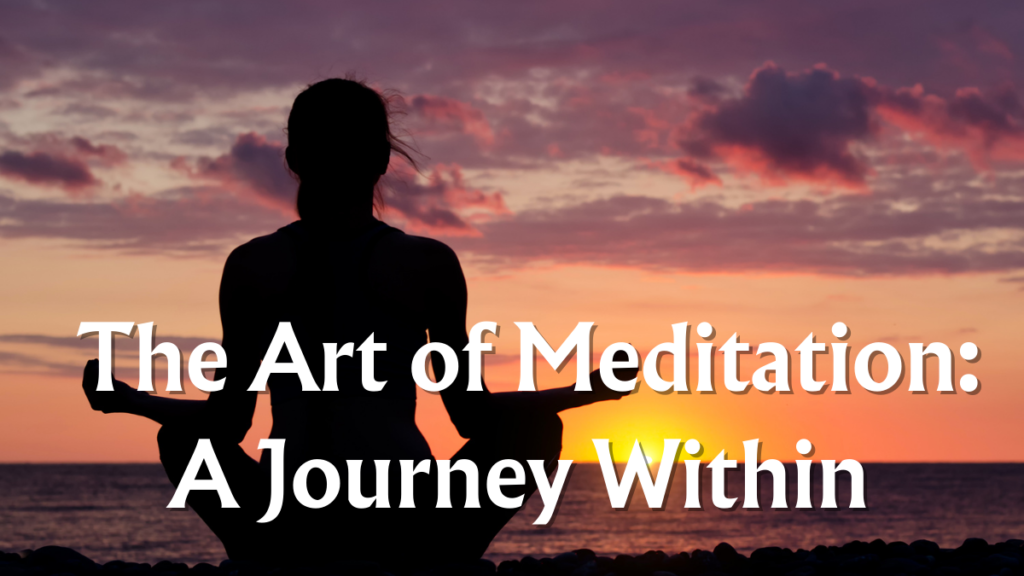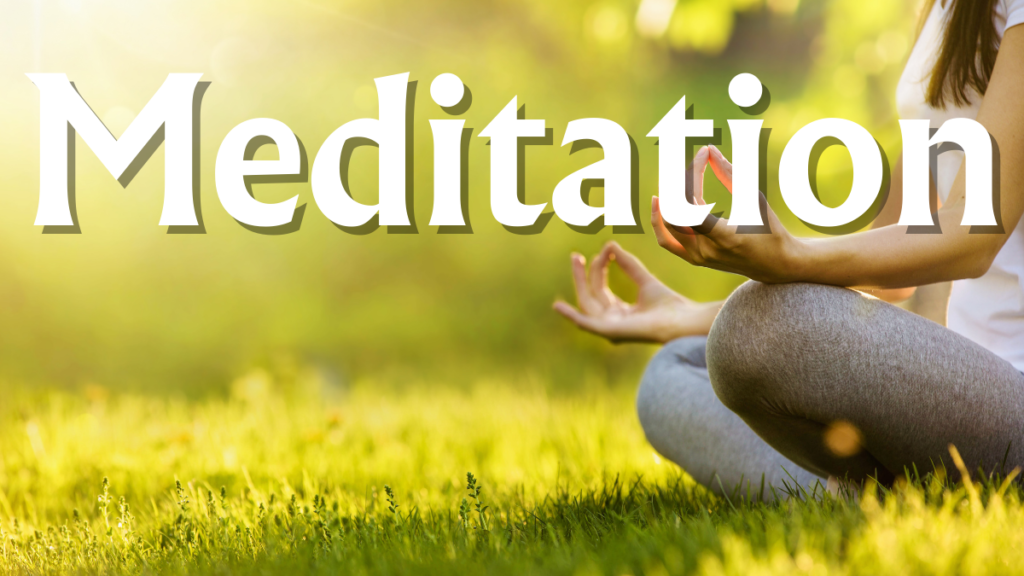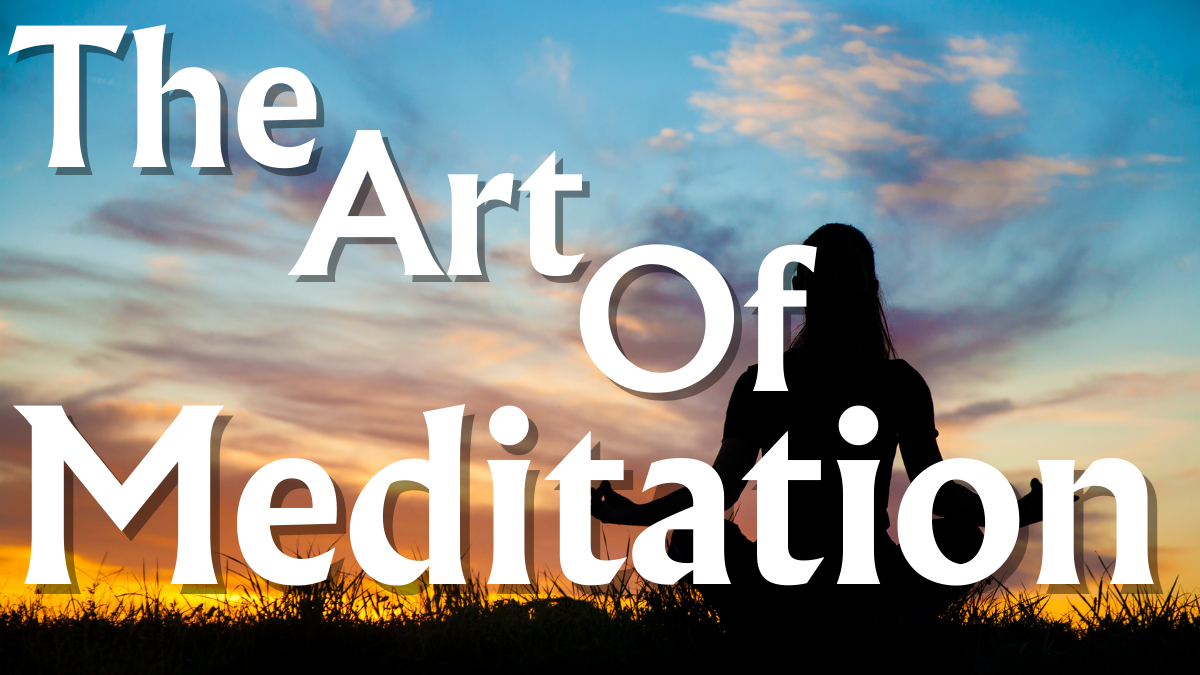The Art of Meditation: A Journey Within (2024)
Meditation stands as a powerful practice in the hustle and bustle of modern life, offering an internal journey to peace and happiness. In the realms of physical, mental, and spiritual existence, meditation emerges as a corrective measure, often neglected in the pursuit of physical well-being.

Introduction: Importance of Meditation in Modern Life
In a world dominated by the care of our physical bodies, the mental and spiritual aspects often take a back seat. However, the pursuit of happiness and peace finds its roots in the neglect of our mental and spiritual well-being. Meditation, as the exercise of the mind, becomes a powerful tool in correcting this imbalance.
Understanding Meditation
Meditation is more than a mere relaxation technique; it delves into the depths of our existence, addressing the miseries caused by thoughts, emotions, desires, and the constant shifts between past and present tense. Meditation becomes a transformative journey by understanding and improving these functions of the mind.
The Power of Meditation
At its core, meditation is about an internal dialogue with oneself, leading to an improved understanding of the mind and soul. Great prophets, saints, and religious leaders throughout history have utilized meditation to achieve enlightenment and greatness.
The Mind and Meditation
Our miseries, according to an introspective analysis, originate from the functions of our mind. Meditation serves as a guide to improving these functions, leading to a reduction in miseries and an increase in peace and happiness.
Internal Journey to Peace
While the external world is often sought for peace and happiness, the realization dawns that these reside within ourselves. Meditation becomes the gateway to this internal journey, offering the gifts of peace and happiness.
Meditation in History
The practice of meditation is not a recent phenomenon. From ancient Lords like Shiva and Buddha to more recent saints, meditation has been a common thread in the paths of enlightenment.
Defining Meditation
Meditation, defined as thinking deeply or spiritually, goes beyond a simple cognitive task. It is an intricate process that involves altered consciousness, spiritual ecstasy, and, according to some, even neurological manifestations.
Different Views on Meditation
Various perspectives exist on the definition of meditation, ranging from stability of mind to intentional self-regulation. However, the common thread is that meditation demands the highest form of discipline and constant awareness.
Benefits of Meditation
The advantages of meditation are extensive, ranging from physical and mental health restoration to stress reduction and improved concentration. Meditation transforms not only the individual but also interpersonal relationships, job performance, and overall quality of life.
Transformation Through Meditation
A person who engages in meditation develops a unique attitude towards life, becoming calm, compassionate, and full of positive energy. Higher states of meditation bring intuitive knowledge, healing power, and a magnetic personality.
Neurochemistry of Meditation
In contrast to stress, meditation positively affects neurochemistry by upregulating the parasympathetic system. This, in turn, leads to reduced heart rate, respiration, and blood pressure.

Spiritual Dimensions of Meditation
Beyond physical and mental benefits, meditation serves a higher purpose in taming the mind, eliminating ego, and ultimately attaining Samadhi—a state of total bliss and self-realization.
Challenges in Meditation
Meditation is not a push-button system; it requires patience, courage, hard work, and perseverance. Unfortunately, the commodification of meditation has led to a high failure rate, emphasizing the importance of the right guide and technique.
Techniques of Meditation
Numerous meditation techniques exist, all derived from the basic eight methods. An example, focusing on breathing (Anapanasati), demonstrates the simplicity and accessibility of meditation.
Breathing Meditation: Anapanasati
Anapanasati, focusing on breath awareness, is a powerful technique. By being conscious of natural breathing effortlessly, practitioners can achieve enlightenment and illumination.
Breathing as a Feedback Mechanism
Breathing, as a carrier of emotions, becomes a feedback mechanism for practitioners. Awareness of breathing patterns allows individuals to manage negative emotions and maintain a calm and compassionate demeanor.
Present Moment Awareness
Meditation techniques, such as focusing on breathing, train individuals to dwell in the present moment—the “Now.” This counters the mind’s tendency to fluctuate between past and future, a major source of human misery.
Various Meditation Techniques
Derived from spiritual masters and teachings, diverse methods like Patanjali Raja Yoga, Vip ashyana, and Zen meditation offer unique approaches, catering to individual preferences.
Designing a Personalized Meditation Practice
Understanding the basics of meditation allows individuals to design a personalized system. Mastery of a standard method can lead to modification and refinement for a tailor-made meditation experience.

Mindfulness in Daily Life
Meditation extends beyond formal sessions into daily life, fostering constant awareness. Rules such as staying present in every activity and developing wakeful plain observation contribute to a mindful lifestyle.
The Art of Meditation: A Journey Within
In the pursuit of the art of meditation, one finds a transformative journey that addresses the physical, mental, and spiritual aspects of existence. The diversity of techniques, from focusing on breathing to mantra meditation, offers a path for every individual seeking inner peace and enlightenment.
Health-related Effects of Meditation
The practice of meditation yields numerous health-related benefits. Reduced oxygen consumption, controlled stress hormone secretion, and activation of neural structures contribute to overall well-being.
Documented Effects of Meditation on Diseases
Meditation has shown documented effects in alleviating or reducing the severity of various diseases, including arthritis, asthma, hypertension, depression, and even terminal cancer-related pain.
Total or Partial Elimination of Disorders
Psychosomatic and lifestyle disorders can be minimized or eliminated with consistent meditation practice. Stress, a common modern ailment, finds a formidable opponent in the art of meditation.
Reduction in Healthcare Visits
People who meditate regularly experience a significant reduction in doctor visits and hospital admissions. The positive impact on overall health is a testament to the effectiveness of meditation.
Conclusion
In conclusion, the art of meditation is a profound journey within oneself, addressing the complexities of modern life. From the historical practices of great leaders to the diverse techniques available, meditation offers a transformative path to peace, happiness, and spiritual enlightenment.
FAQs (Frequently Asked Questions)
1. Is meditation a religious practice?
– Meditation has roots in various religious traditions, but it can be practiced independently of any religious affiliation.
2. How long does it take to see the benefits of meditation?
– The timeline varies, but many individuals report experiencing positive effects within a few weeks to months of consistent practice.
3. Can meditation be learned without a guide?
– While self-guided meditation is possible, having a knowledgeable guide can enhance the learning process and address challenges.
4. Are there specific meditation techniques for beginners?
– Techniques like mindfulness and breath awareness are often recommended for beginners due to their simplicity and effectiveness.
5. Can meditation replace medical treatment for certain conditions?
– Meditation can complement medical treatment but should not be a sole substitute. Consultation with healthcare professionals is advised for serious health conditions.






